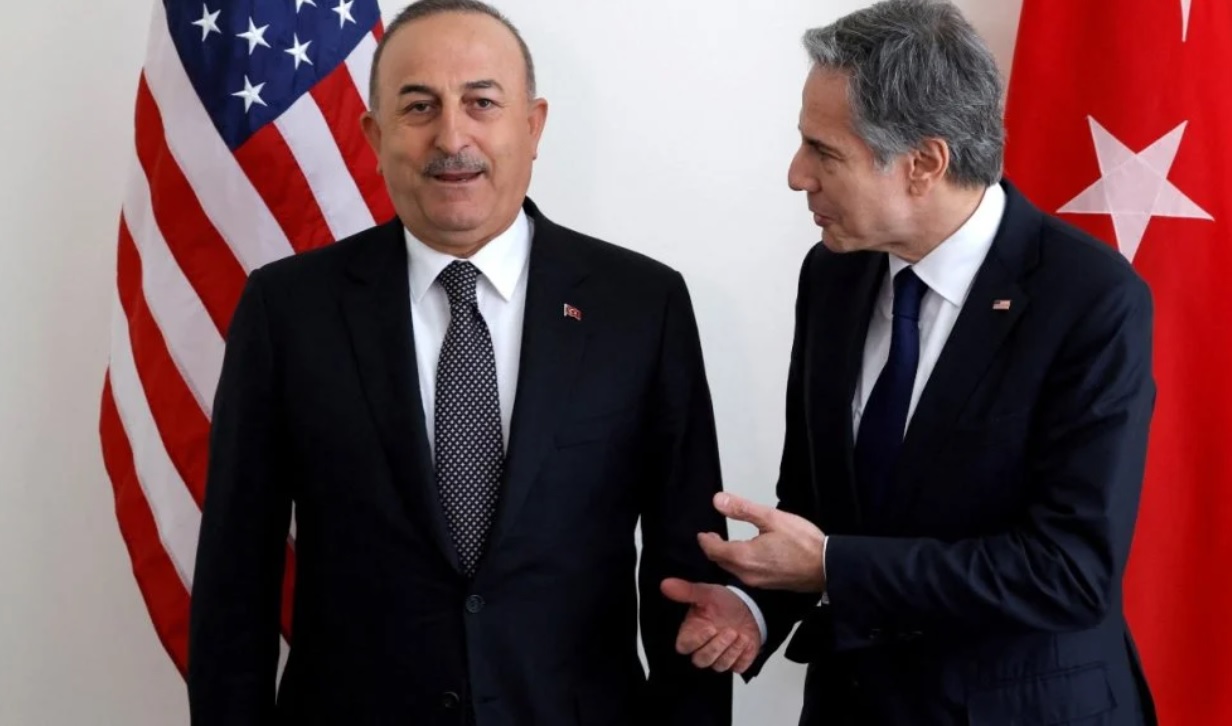Turkish President Recep Tayyip Erdogan reiterated his opposition to Sweden's and Finland's NATO bids earlier this week, casting doubt on the alliance's expansion.
“We will not say yes to those [countries] that impose sanctions on Turkey,” Erdogan said at a press conference, apparently referring to Sweden's support for restrictions on arms sales to Turkey in connection with Ankara's military intervention in the Syrian conflict.
Turkey has previously criticized Stockholm and Helsinki for harboring and supporting Kurdistan Workers' Party (PKK) militants, whom it calls terrorists and criminals. The PKK is a separatist, ethno-nationalist and Marxist movement seeking to create an independent state within Turkey. Ankara, which along with the United States and the EU calls the PKK a terrorist organization, has accused the two Scandinavian countries of ignoring its extradition requests for individuals associated with the PKK. Turkish media also claimed that Sweden supplied arms to the PKK "terrorist group" responsible for organizing attacks against the Turkish military in Syria from 2017 to 2021, and that illegal activities in Sweden make up a large part of the PKK's income stream. Ankara has also criticized Finland for hosting individuals associated with terrorist organizations and sanctioning PKK demonstrations throughout the country.
“They will come to persuade us? Sorry, but they don't have to worry,” Erdogan added, referring to Finnish and Swedish officials' stated plans to fly to Ankara to talk him out of blocking their entry into NATO. Swedish Foreign Minister Ann Linde said on Saturday that her country considers the PKK a terrorist organization and reaffirmed Stockholm's willingness to engage in substantive talks with Turkey, although she has not committed to addressing any specific Ankara claims.
Secretary of State Anthony Blinken met with Turkish Foreign Minister Mevlut Cavusoglu on Wednesday to clarify Turkey's position. “You know, Tony, Turkey supported NATO's open door policy even before this war. But with regard to these possible candidates - or already candidate countries - we also have legitimate fears that they supported terrorist organizations. There are also restrictions on the export of defense products,” Cavusoglu said.
NATO chief Jens Stoltenberg, who previously said Finland and Sweden would be "warmly received" if they decide to bid, indicated this week that Turkey's objections would derail the alliance's ambitious plan to consider the two Nordic countries' bids within weeks. “We take into account the concerns that Turkey has expressed because when an important ally [like] Turkey raises security issues, then of course the only way to deal with it is to sit down and find common ground,” Stoltenberg told reporters.
President Joe Biden showed an optimistic tone when asked about Turkey's concerns this week. “I will not go to Turkey, but I think we will be fine,” Biden said.
It remains unclear whether Turkey, which has the second largest army in NATO and positions itself as a key mediator in the protracted peace talks between Russia and Ukraine, is strongly opposed to the Finnish-Swedish entry. Experts note that there may be dissonance between the statements of Turkish diplomats and Erdogan's final position. “I do not rule out possible disagreements between Turkish diplomats and Erdogan. There have been examples of this in the past,” Turkish journalist Barchin Inan told NPR.
It is also unclear whether Finland and Sweden are ready to make concessions that would be enough to potentially appease Ankara. “Any move that could be construed as kowtowing to Erdogan could be unpopular with Swedish voters,” The Washington Post notes. For Stockholm to lift its restrictions on arms exports or give in to Erdogan's extradition demands, it would, in effect, be a public admission of concessions to a state that many Western observers describe as "autocratic" and "authoritarian."
This type of appeasement is unlikely to succeed at a time when NATO is embroiled in what Western politicians are constantly branding as a global confrontation between democracy and autocracy. “If an authoritarian country like Turkey can prevent democracies like Sweden and Finland from joining NATO, it might be time to rethink our membership requirements,” former Congressman Will Hurd tweeted. Others point to the moral hazard the alliance is facing: accepting Erdogan's ultimatum to Sweden and Finland could whet his appetite for broader demands, including lifting restrictions on arms exports imposed by other NATO members.
The accession of Finland and Sweden to NATO was presented by senior officials as a quick and indisputable result that would clearly strengthen the alliance at a time of rising pressure. in Europe. Instead, a dangerous, protracted process is emerging, with potentially serious implications for NATO's long-term unity.
Read also:
China warns US against intensifying confrontation between geopolitical blocs
Emmanuel Macron and Xi Jinping called for the restoration of peace in Ukraine through negotiations

